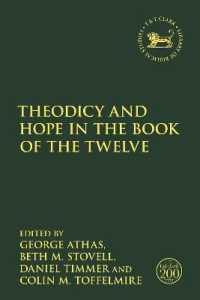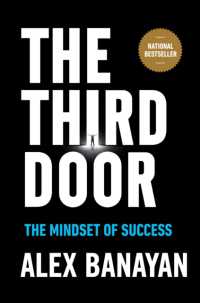Full Description
Haitian Vodou breaks away from European and American heuristic models for understanding a religio-philosophical system such as Vodou in order to form new approaches with an African ethos. The contributors to this volume, all Haitians, examine the potentially radical and transformative possibilities of the religious and philosophical ideologies of Vodou and locate its foundations more clearly within an African heritage. Essays examine Vodou's roles in organizing rural resistance; forming political values for the transformation of Haiti; teaching social norms, values, and standards; influencing Haitian culture through art and music; merging science with philosophy, both theoretically and in the healing arts; and forming the Haitian "manbo," or priest.
Contents
Contents
IntroductionPatrick Bellegarde-Smith and Claudine Michel
1. Vodun and Social Transformation in the African Diasporic Experience: The Concept of Personhood in Haitian Vodun ReligionGuérin C. Montilus
2. Shadow-Matter Universes in Haitian and Dagara Ontologies: A Comparative StudyRéginald O. Crosley
3. Broken Mirrors: Mythos, Memories, and National HistoryPatrick Bellegarde-Smith
4. Of Worlds Seen and Unseen: The Educational Character of Haitian VodouClaudine Michel
5. Vodun, Music, and Society in Haiti: Affirmation and IdentityGerdès Fleurant
6. Vodoun, Peasant Songs, and Political OrganizingRénald Clérismé
7. From the Horses' Mouths: Women's Words/Women's WorldsClaudine Michel, Patrick Bellegarde-Smith, and Marlène Racine-Toussaint
8. Rainbow over Water: Art, Vodou Aestheticism, and PhilosophyMarc A. Christophe
9. A Reading of the Marasa Concept in Lilas Desquiron's Les Chemins de Loco-MiroirFlorence Bellande-Robertson
10. Herbs and Energy: The Holistic Medical System of the Haitian PeopleMax-G. Beauvoir
ConclusionPatrick Bellegarde-Smith and Claudine Michel
Appendix: Table of Haitian Lwa
Bibliography
List of Contributors
Index








